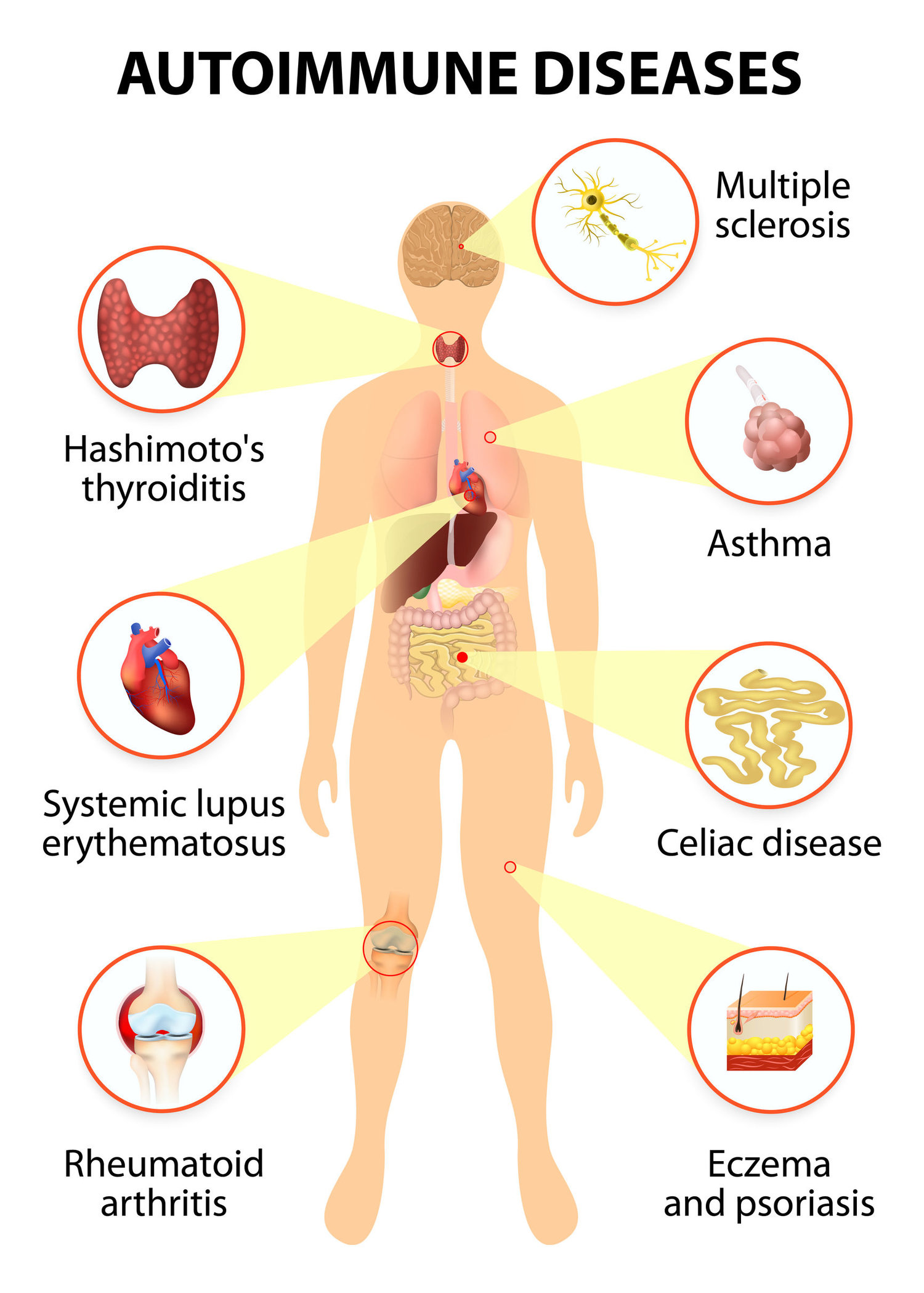May is a significant month in the health community as it shines a spotlight on several autoimmune diseases, including Celiac Disease, Fibromyalgia, Lupus, and Multiple Sclerosis (MS). Raising awareness about these conditions is crucial for promoting early diagnosis, effective treatment, and support for those affected. Here’s an overview of each disease and the importance of this awareness month.
Celiac Disease
Overview:
Celiac Disease is an autoimmune disorder where the ingestion of gluten leads to damage in the small intestine. It affects approximately 1% of the population worldwide, though many cases remain undiagnosed. When someone with Celiac Disease consumes gluten, their immune system responds by attacking the small intestine, leading to malabsorption of nutrients.
Symptoms:
Common symptoms include abdominal pain, bloating, diarrhea, weight loss, and fatigue. Some individuals may also experience skin rashes, joint pain, and neurological symptoms.
Importance of Awareness:
Increased awareness can lead to better understanding and earlier diagnosis, reducing the risk of long-term complications such as osteoporosis, infertility, and certain cancers. Awareness campaigns also promote the availability of gluten-free options in restaurants and stores, improving the quality of life for those with Celiac Disease.
Fibromyalgia
Overview:
Fibromyalgia is a chronic condition characterized by widespread musculoskeletal pain, fatigue, sleep disturbances, and cognitive difficulties. It affects about 2-4% of the adult population, predominantly women. The exact cause of fibromyalgia is unknown, but it is believed to involve a combination of genetic, environmental, and psychological factors.
Symptoms:
Key symptoms include widespread pain, tenderness, fatigue, sleep problems, and “fibro fog,” which refers to difficulties with concentration and memory.
Importance of Awareness:
Awareness efforts can help dispel myths and misconceptions about fibromyalgia, leading to better support and treatment for sufferers. Improved recognition can encourage more research into the condition’s causes and treatments, providing hope for those affected.
Lupus
Overview:
Lupus, or systemic lupus erythematosus (SLE), is a chronic autoimmune disease where the immune system attacks healthy tissues throughout the body. It can affect the skin, joints, kidneys, brain, and other organs. Lupus is more common in women, particularly women of color.
Symptoms:
Lupus symptoms vary widely but can include fatigue, joint pain, skin rashes (notably the “butterfly rash” on the face), fever, and organ involvement such as kidney inflammation.
Importance of Awareness:
Raising awareness about lupus helps in early detection and treatment, potentially reducing the severity of the disease and preventing organ damage. It also fosters a supportive environment for those living with lupus, promoting understanding and empathy.
Multiple Sclerosis (MS)
Overview:
Multiple Sclerosis is a chronic disease that affects the central nervous system, including the brain and spinal cord. The immune system attacks the protective sheath (myelin) that covers nerve fibers, causing communication problems between the brain and the rest of the body. MS affects over 2.8 million people globally, with women being affected three times more often than men.
Symptoms:
Symptoms of MS can include fatigue, numbness, tingling, muscle weakness, coordination problems, and vision issues. The severity and progression of symptoms can vary widely among individuals.
Importance of Awareness:
Awareness about MS can lead to earlier diagnosis and intervention, improving the quality of life for those affected. It also encourages research funding for new treatments and potential cures. Awareness campaigns can educate the public about the challenges faced by those living with MS, fostering a more inclusive and supportive society.
Conclusion
May serves as a vital month for raising awareness about Celiac Disease, Fibromyalgia, Lupus, and Multiple Sclerosis. By educating the public and promoting understanding, we can improve the lives of those affected, support research efforts, and work towards better treatment and management options. Awareness is the first step towards change, and together, we can make a difference for millions of people living with these autoimmune diseases.

